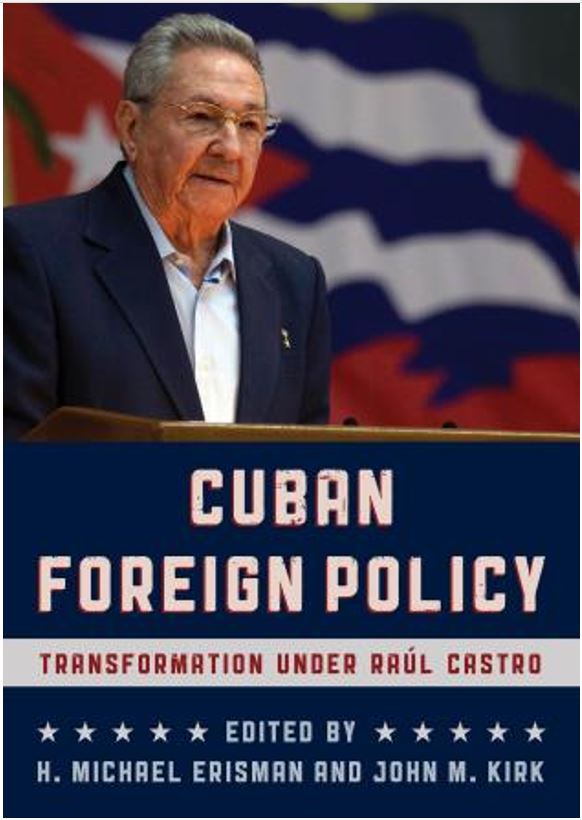Edited by H. Michael Erisman and John M. Kirk
This volume illustrates the sweeping changes in Cuban foreign policy under Raúl Castro. Leading scholars from around the world show how the significant shift in foreign policy direction that started in 1990 after the implosion of the Soviet Union has continued, in many ways taking totally unexpected paths—as is shown by the move toward the normalization of relations with Washington. Providing a systematic overview of Cuba’s relations with the United States, Latin America, Russia, Europe, the Middle East, Asia, and Africa, this book will be invaluable for courses on contemporary Cuban politics.
THE AUTHORS:
Michael Erisman is professor of international affairs at Indiana State University.
John M. Kirk is professor of Latin American studies at Dalhousie University.
PUBLICATION DETAILS:
Rowman & Littlefield Publishers
Pages: 314 • Trim: 6 x 9
978-1-4422-7092-3 • Hardback • April 2018 • $85.00 • (£54.95)
978-1-4422-7093-0 • Paperback • April 2018 • $35.00 • (£23.95)
978-1-4422-7094-7 • eBook • April 2018 • $33.00 • (£22.95)
TABLE OF CONTENTS
- Historical Introduction to Foreign Policy under Raúl Castro, John M. Kirk
Part I: Key Issue Areas
- The Defense Contribution to Foreign Policy: Crucial in the Past, Crucial Today
Hal Klepak, - Cuba’s International Economic Relations: A Macroperspective on Performance and Challenges, H. Michael Erisman
- The Evolution of Cuban Medical Internationalism, John M. Kirk
Part II: Cuba’s Regional Relations
5. Cuba and Latin America and the Caribbean, Andrés Serbin
6. Cuba and Africa: Recasting Old Relations in New but Familiar Ways, Isaac Saney
7. Cuba and Asia and Oceania, Pedro Monzón and Eduardo Regalado Florido
8. Cuba and the European Union, Susanne Gratius
9. Cuba, Oceania, and a “Canberra Spring”, Tim Anderson
Part III:Cuba’s Key Bilateral Relations
10. The United States and Cuba, William LeoGrande
11. Canada and Cuba, John M. Kirk and Raúl Rodríguez
12. Spain and Cuba, Joaquín Roy
13. Venezuela and Cuba, Carlos A. Romero
14. Brazil and Cuba, Regiane Nitsch Bressan
15. Russia and Cuba, Mervyn Bain
16. China and Cuba, Andrian H. Hearn and Rafael Hernández
Part IV: Retrospective and Prospective Views
17. Conclusion, H. Michael Erisman and John M. Kirk


